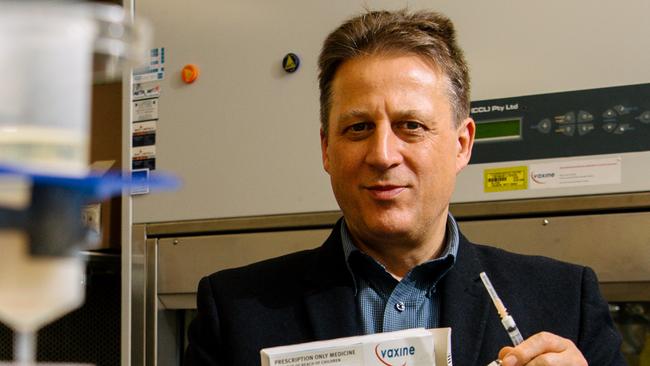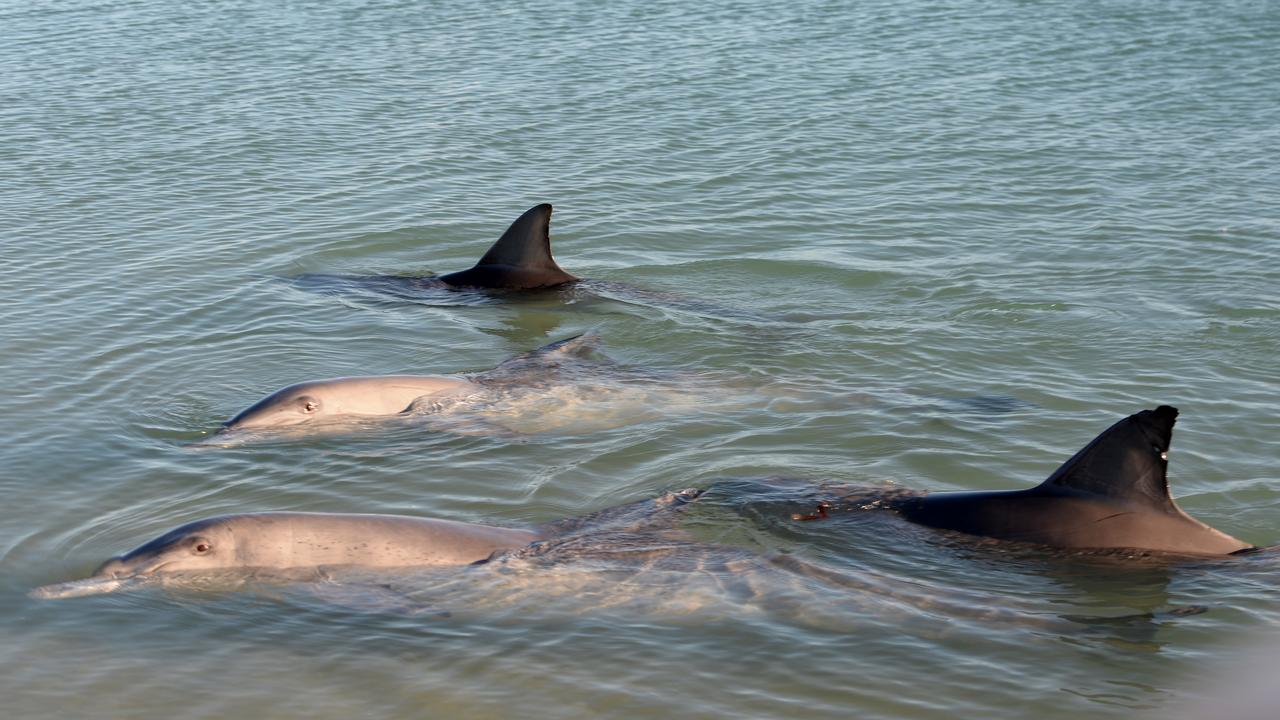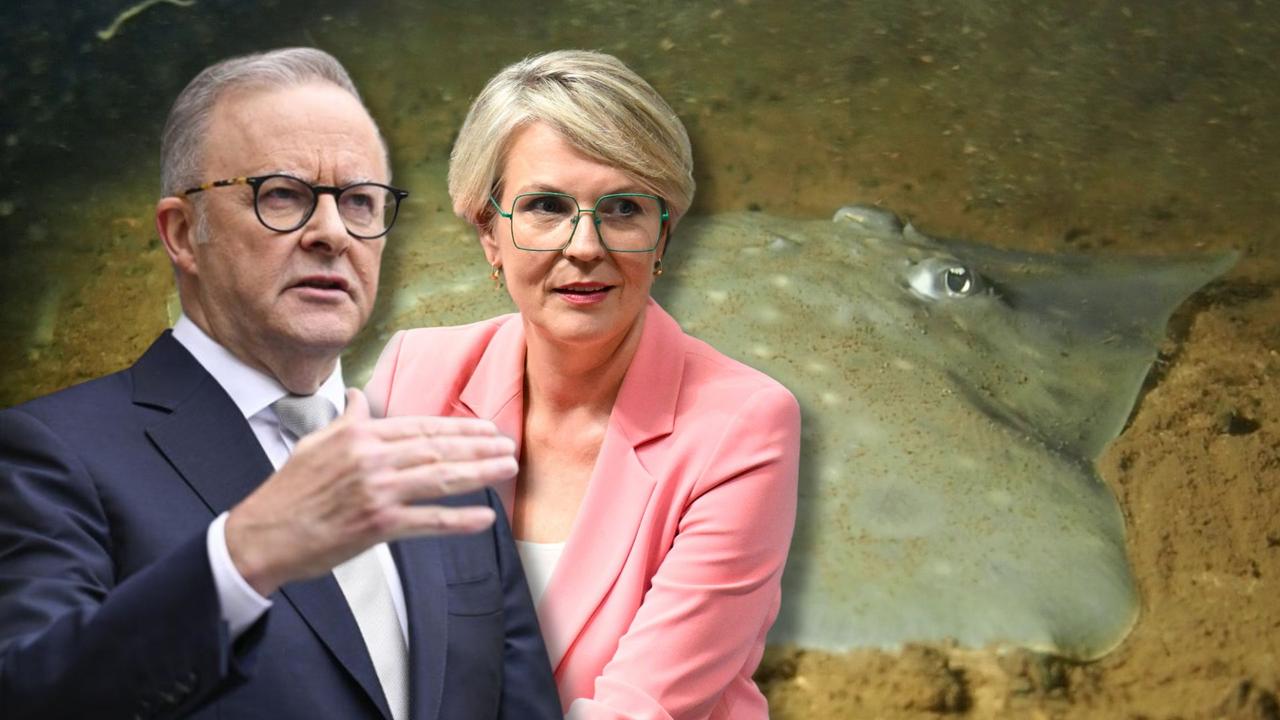Coronavirus: Vaccine test clear for more volunteers
COVID-19 vaccine developed in Adelaide shown to be safe in phase 1 trials, and has generated an immune response.

A COVID-19 vaccine that has been developed by Adelaide scientists has been shown to be safe in phase 1 trials, and has generated an immune response in human subjects.
The vaccine developed by Flinders University professor Nikolai Petrovsky is the first candidate to clear phase 1 trials in Australia, and one of only a handful that have progressed beyond the first phase of human trials in the world.
Forty volunteers were dosed with the vaccine, dubbed Covax-19, this month. While definitive study results are yet to be published, Professor Petrovsky said safety data from the phase 1 trial of the vaccine had been provided to the study’s ethics committee, which had approved further testing in more volunteers, including the elderly, children and cancer patients.
“We have confirmed that the Covax-19 vaccine can induce appropriate antibody responses in human subjects,” he said. “We now have preliminary safety data showing there were no significant systemic side-effects in any of the subjects.
“We also have permission to immunise subjects who have already had COVID-19 to see if we can further boost their immunity and prevent them getting reinfected.”
Professor Petrovsky, the founder of biotechnology firm Vaxine, is offering to dose aged-care residents at risk of contracting COVID-19 with his experimental vaccine.
“We’ve made the offer to Victoria,” he said. “Obviously our vaccine is still under testing, it would have to be done within a clinical trial but there’s no reason you couldn’t enrol people in Victorian nursing homes into the trial and give them the vaccine which would hopefully then protect them.
“We’re certainly very open to talking to the Victorian government about doing that, which would hopefully have a benefit even if it’s within the context of a clinical trial. We know it’s not going to hurt because we now know that the vaccine is completely safe.”
None of the 40 volunteers who were dosed with Covax-19 reported significant side-effects, and no one experienced a fever. This is in contrast to the phase 1 results of two other vaccines that have now progressed to phase 3 testing, from the University of Oxford and the US biotech company Moderna.
Phase 2 trials for Covax-19, set to involve between 400 and 500 volunteers, are slated to begin in September. Vaxine is also negotiating with other countries on plans for phase 3 trials, which would need to enrol up to 50,000 volunteers, predominantly in countries heavily affected by COVID-19.
There are more than 150 vaccines in development globally, with 21 undergoing human trials.
The University of Queensland also has a vaccine candidate, which this month began to be tested on human volunteers in phase 1 trials.
Vaxine has previously developed a vaccine for swine flu, as well as vaccines for two forms of bird flu. The company has a patented vaccine adjuvant known as Advax, which effectively boosts the immune response in human subjects.
Both Covax-19 and the University of Queensland candidate are protein sub-unit vaccines that inject small synthetised pieces of the SARS-CoV-2 spike protein into the body to induce an immune response. UQ has partnered with CSL to manufacture millions of doses of the university’s vaccine.
Recombinant protein vaccines work by inducing an immune response in the body to invasion by the spike proteins of the SARS-CoV-2 virus that causes COVID-19.
These protein spikes surround the surface of the SARS-CoV-2 virus, forming part of the crown or “corona” that gives the virus its name.
In coronavirus infection, the SARS-CoV-2 spikes, called S1 proteins, bind to a receptor molecule on the body’s cells, called ACE2. The virus is then able to invade the cell and replicate extensively. SARS-CoV-2 has a high binding capacity for ACE2, making it highly infectious.
To make a recombinant protein-based vaccine, researchers insert the genetic sequence for the coronavirus’ distinctive spike protein into a cell. The cell then grows this protein. Researchers then purify the protein and turn it into a vaccine.




To join the conversation, please log in. Don't have an account? Register
Join the conversation, you are commenting as Logout